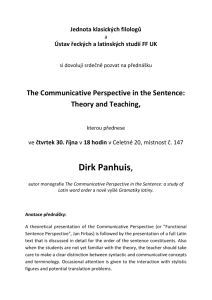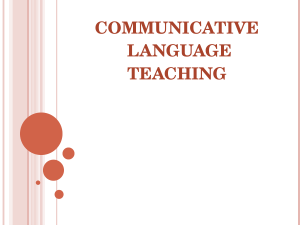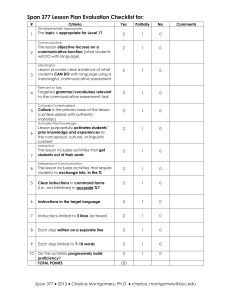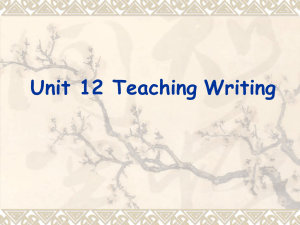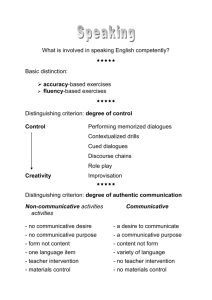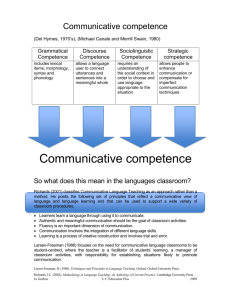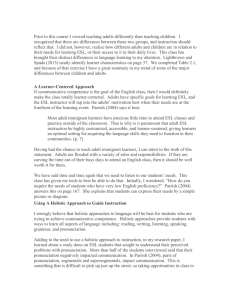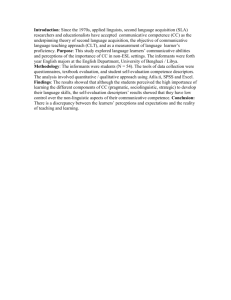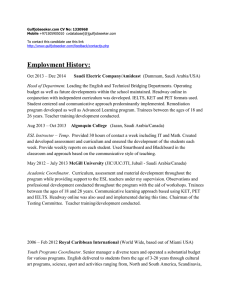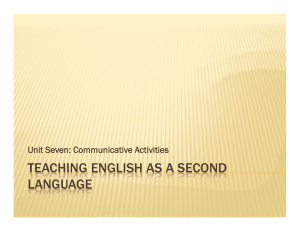Principles of the Communicative Approach to ESL
advertisement
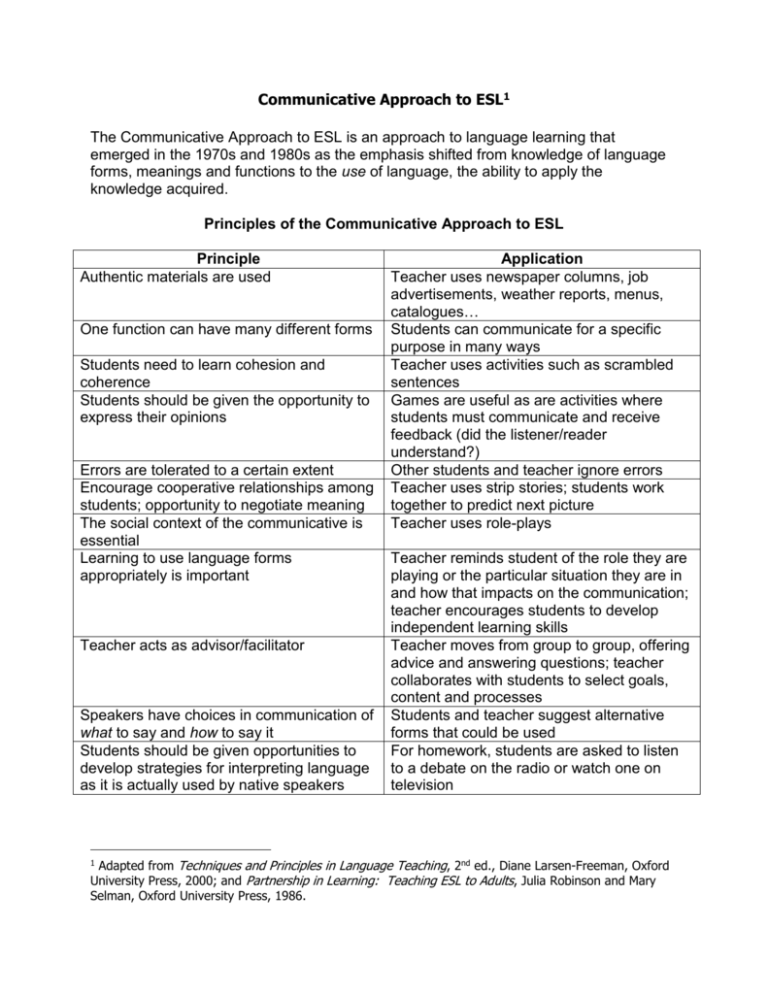
Communicative Approach to ESL1 The Communicative Approach to ESL is an approach to language learning that emerged in the 1970s and 1980s as the emphasis shifted from knowledge of language forms, meanings and functions to the use of language, the ability to apply the knowledge acquired. Principles of the Communicative Approach to ESL Principle Authentic materials are used One function can have many different forms Students need to learn cohesion and coherence Students should be given the opportunity to express their opinions Errors are tolerated to a certain extent Encourage cooperative relationships among students; opportunity to negotiate meaning The social context of the communicative is essential Learning to use language forms appropriately is important Teacher acts as advisor/facilitator Speakers have choices in communication of what to say and how to say it Students should be given opportunities to develop strategies for interpreting language as it is actually used by native speakers Application Teacher uses newspaper columns, job advertisements, weather reports, menus, catalogues… Students can communicate for a specific purpose in many ways Teacher uses activities such as scrambled sentences Games are useful as are activities where students must communicate and receive feedback (did the listener/reader understand?) Other students and teacher ignore errors Teacher uses strip stories; students work together to predict next picture Teacher uses role-plays Teacher reminds student of the role they are playing or the particular situation they are in and how that impacts on the communication; teacher encourages students to develop independent learning skills Teacher moves from group to group, offering advice and answering questions; teacher collaborates with students to select goals, content and processes Students and teacher suggest alternative forms that could be used For homework, students are asked to listen to a debate on the radio or watch one on television Adapted from Techniques and Principles in Language Teaching, 2nd ed., Diane Larsen-Freeman, Oxford University Press, 2000; and Partnership in Learning: Teaching ESL to Adults, Julia Robinson and Mary Selman, Oxford University Press, 1986. 1
